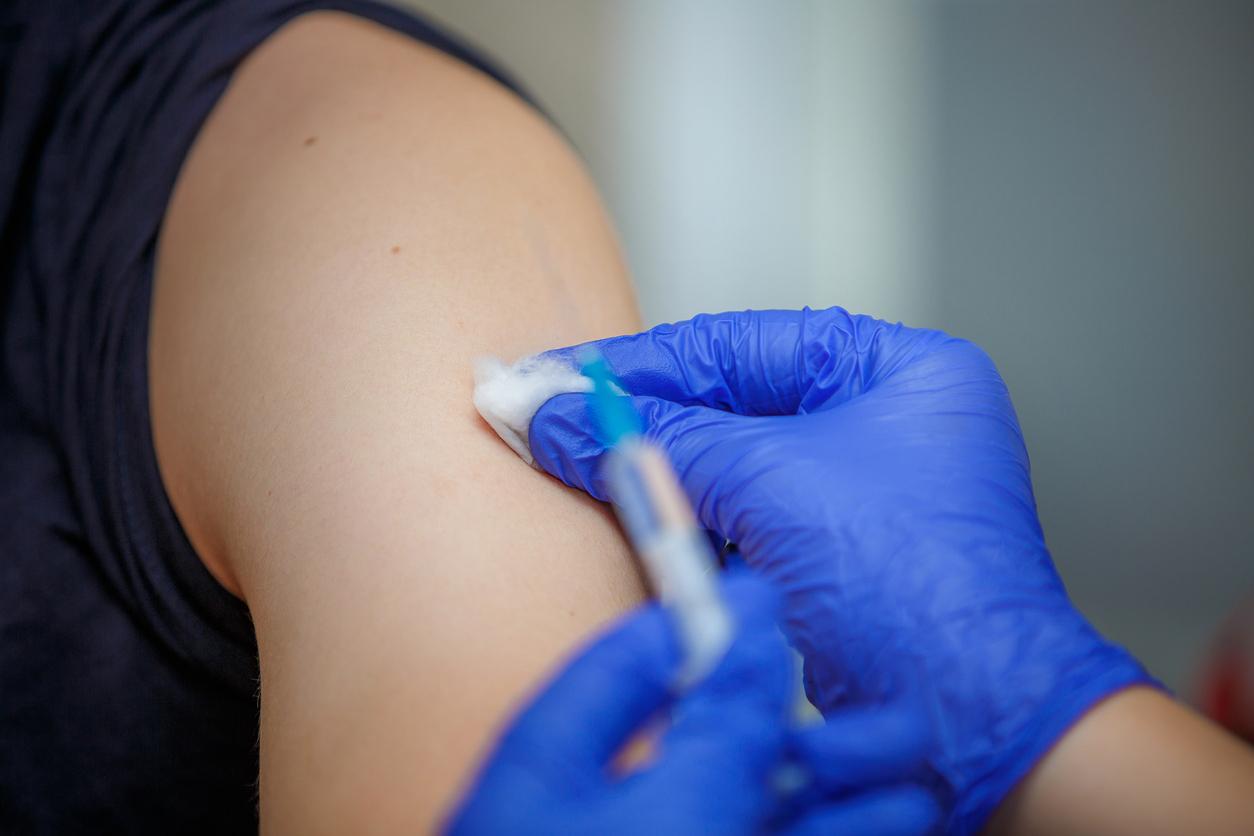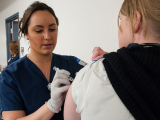A new large Kaiser Permanente cohort study finds that flu vaccination during pregnancy is associated with a 44% reduction in infant influenza during the first 6 months of life.
A second study shows that flu vaccine efficacy (VE) in Japanese children in 2024-25 was 73% against flu-related hospitalizations.
Almost half received flu shot while pregnant
Newborns are at risk for serious complications from influenza infections but are not eligible for vaccination until they are 6 months or older. Maternal vaccination is a way to offer passive antibodies to newborns, and thus reduce risk of severe outcomes in the first 6 months of life.
The first study, published in Obstetrics & Gynecology, assessed infant influenza outcomes after flu vaccine administered any time during pregnancy and by trimester of vaccination among 245,498 infants who were born to pregnant women enrolled in Kaiser Permanente Northern California. The study population included women with pregnancy-onset dates from January 1, 2011, to December 31, 2022, who had at least one prenatal visit and liveborn infants.
Of the infants included in the study, less than half (46.0%) were born to mothers who were vaccinated against influenza during pregnancy. Among infants born to vaccinated mothers, 25.7% were vaccinated during the first trimester, 42.1% during the second trimester, and 32.2% during the third trimester.
Vaccination in second, third trimester most protective
"Vaccination during the second trimester was associated with a 51.5% reduction in infant influenza during the first 6 months of life; vaccination during the third trimester was associated with a 59.3% reduction," the authors wrote. "Vaccination during the first trimester was associated with a 11.3% reduction in the risk of infant influenza, but this reduction was not statistically significant."
Vaccination during the second trimester was associated with a 51.5% reduction in infant influenza during the first 6 months of life.
Maternal vaccination significantly reduced the risk of infant influenza by 51.4% for infants aged 0 to 60 days, by 55.5% for infants aged 61 to 120 days, and by 28.5% for infants aged 121 to 180 days. Overall protection was 44.4% for infants.
"We observed that the effectiveness of maternal vaccination against infant influenza infection decreased as infants aged from 0 to 6 months. These findings are consistent with a general decline in all maternal antibodies that infants received transplacentally as they age, leading to a decrease in protection," the authors concluded.
Overall, more should be done to encourage maternal flu vaccination during the second and third trimesters of pregnancy, the authors said.
Vaccine 57% protective against outpatient flu in children
In the second study, published in Vaccine, researchers conclude that the 2024-25 flu vaccine was 57% effective against outpatient flu and 73% effective against flu-related hospitalization among Japanese children.
The study was based on outcomes seen among 1,355 children aged 6 months to 15 years who had fever and were tested for influenza.
The 2024-25 flu season was the first season the live-attenuated influenza vaccine (LAIV) was introduced in Japan, but only 1.2% of the population received the vaccine, making VE hard to estimate. Inactivated influenza vaccine (IIV) coverage was 35%.
Among influenza-negative children, IIV coverage was 40% in hospitalized cases and 43% in outpatients. Among those with influenza A, IIV coverage was 14% in hospitalized children and 21% in outpatients.
Among 933 hospitalized children, the adjusted VE was 73% (95 % confidence interval [CI], 57% to 83%).
"Although the effectiveness of LAIV could not be assessed due to its low coverage, the demonstrated effectiveness of IIV supports its continued recommendation for pediatric populations," the authors concluded.



















